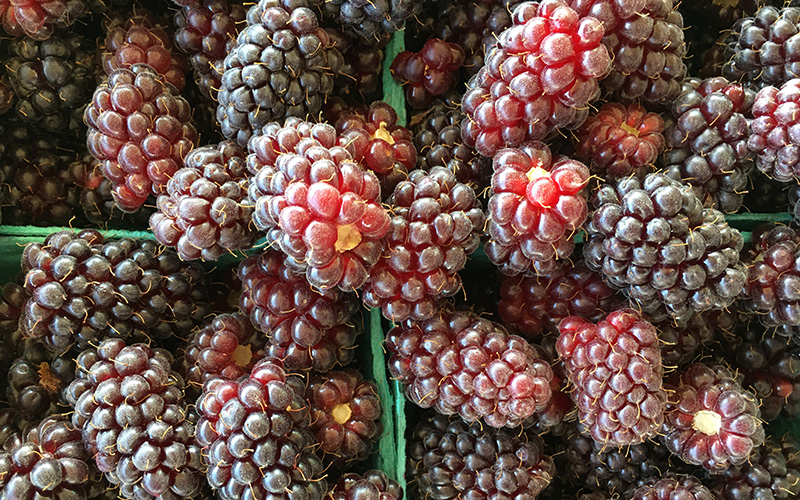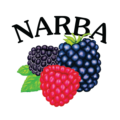Raspberry & blackberry nutrition
more berries, please!
Fresh blackberries and raspberries are a sweet and tart seasonal treat and frozen berries extend that timeline to a year-round staple. The healthy attributes of these berry powerhouses go beyond their great taste, they pack an impressive array of health benefits as well.

healthy treat
Nutritional Powerhouse
Maximum Benefits
Eating berry fruits like blackberries and raspberries may improve brain health and help prevent memory loss caused by aging due to their well-documented antioxidant properties. (Source: https://pubs.acs.org/doi/abs/10.1021/jf2036033) Blackberry and raspberry health benefits continue to be studied to definitively identify the multiple benefits they offer for human health and wellness.
Learn to enjoy blackberries and raspberries in smoothies, yogurt parfait or in salads and baked goods daily for maximum health benefits.
Current Research
To learn more about the nutritional value and health benefits of blackberries and raspberries visit the links below.
- Linus Pauling Institute | https://lpi.oregonstate.edu/mic/food-beverages/fruit-vegetables
- USDA raw blackberry nutrient profile | https://fdc.nal.usda.gov/fdc-app.html#/food-details/1102700/nutrients
- USDA frozen blackberry nutrient profile | https://fdc.nal.usda.gov/fdc-app.html#/food-details/1102701/nutrients
- USDA raw raspberry nutrient profile | https://fdc.nal.usda.gov/fdc-app.html#/food-details/167755/nutrients
- USDA frozen raspberry nutrient profile | https://fdc.nal.usda.gov/fdc-app.html#/food-details/168209/nutrients
- Berry Health Benefits Symposium | https://berryhealth.org
- John Hopkins Medicine | https://www.hopkinsmedicine.org/health/wellness-and-prevention/berry-good-for-your-heart
- Healthline | https://www.healthline.com/nutrition/11-reasons-to-eat-berries#TOC_TITLE_HDR_12
- One Green Planet | https://www.onegreenplanet.org/lifestyle/blackberries-and-raspberries-health-benefits-and-foraging-tips/
- Everyday Health | https://www.everydayhealth.com/diet-nutrition-pictures/amazing-health-benefits-of-berries.aspx
- Oregon Raspberries and Blackberries | https://oregon-berries.com/berry-health-benefits/
